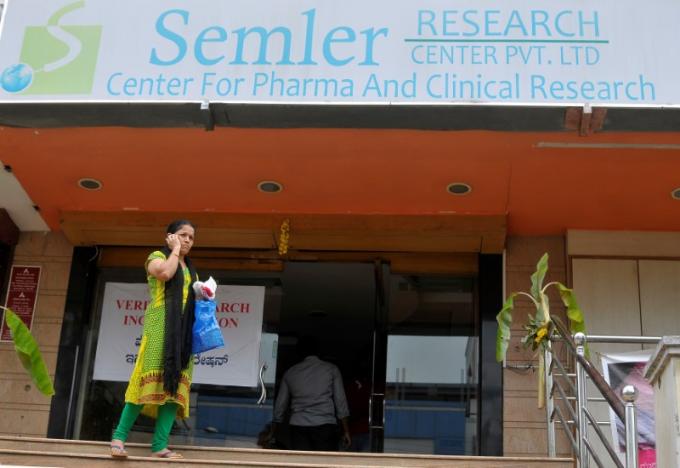India's clinical medical trial business is difficult to improve in the short term
The Indian generics industry is a big cake, but it faces various problems. In 2016, the impact of data fraud at the Semler Research Center on the companies involved in the WHO and FDA announcements was enormous. The incident also sparked strong protests from Indian pharmaceutical companies and even the Indian government. Reuters has put forward some thoughts on the status quo of the generics industry. Three years ago, Vasudeva Prakash quit his work in Hyderabad to pursue another career he thought was more "money way": to participate in clinical trials of generic drugs. Over the past two years, Prakash has been involved in the clinical trials of international pharmaceutical companies' clinical research organizations (CROs) for the treatment of AIDS and other diseases. In India, drug acceptance CRO testing is the key to approval and sales worldwide. Clinical research and bioanalysis conducted at the Semler Research Center in Bangalore have serious data integrity and are closed However, Prakash did not follow the international testing guidelines for drug testing, and the CRO organization that hired him did not ask him to do so. He said that in order to make more money, he continued to participate in multi-drug trials one by one. The interval between two adjacent drugs was only a few weeks or even days, instead of waiting for 90 days according to the recommendations of the World Health Organization. Do it later. Tampering test data Half of the more than a dozen generic drug clinical trial volunteers interviewed by Reuters in Chennai, Hyderabad, Bangalore and New Delhi said they were less than 90 days apart from adjacent drug trials. In the past three or four years, they spent a few months on a few cities, because they can participate in as many project research as possible and get more income. The documentation provided by Prakash demonstrates that he has conducted short-term trials of Apotex Research Pvt Ltd at Apotex, a Canadian pharmaceutical company, and Lotus Labs, a US generics company, Actavis Inc., which has been a limited subsidiary of the US pharmaceutical company Par Pharmaceutical since last year. The company's Ethics Bio Lab, India Semler Research Center Co., Ltd., etc. Ethics Bio and Apotex did not respond to the incident, and Lotus Labs and Semler said they have established a system to check whether trial volunteers have cross-involved drug trials. The World Health Organization's guiding principles determine that the approval of drugs sold in several countries is based on the UN Essential Medicines Program, but this guiding principle is not legally binding on CROs. Although India also has clinical trial guidelines, they do not specify the specific length of time that participants should be separated between trials. Despite this, after some CRO organizations have undergone the most recent international regulatory review, the continuous drug clinical testing of these volunteers has triggered new questions about the regulatory level of the Indian generic testing industry. Last year, the investigation found that there was a tampering with the test data of generic drugs in India. For this reason, the European Medicines Agency has set up about 700 drugs as illicit drugs in various parts of Europe.
1. What is SARMS? Is SARMS a drug? 99% Powder Agmatine Sulfate,Powder Agmatine Sulfate,Agmatine Sulfate Powder Shaanxi YXchuang Biotechnology Co., Ltd , https://www.peptidenootropics.com
SARMS is a selectively targeted androgen receptor modulator.
By regulating the receptivity and availability of androgens to muscle cells, which correspond to Steroids. Steroids are exogenous androgens, while SARMS regulates the absorption and use of androgens in muscles. Both exogenous and endogenous androgens can be regulated. So the results of steroid +SARMS can be imagined!
SARMS is not strictly a drug; it is a substance that sits somewhere between a supplement and a drug.
2. What are the characteristics and advantages of SARMS?
SARMS, a selective androgen receptor modulator, is considered as a bridging compound in bodybuilding that produces similar results to steroids, but without the same side effects. All SARMS do not suppress viscera, have no hepatotoxicity, and do not transfer to females.
3. Introduction of SARMS common categories?
SARMS series of quality products :S4, YK-11, GW-501516, LGD-4033, MK2866, MK-677, RAD-140,LGD-3303, SR9009
Mk-2866: MK2866- Selectively performs anabolic activity on certain ARs, which is very helpful for maintaining and increasing lean meat quality and resilience.
Lgd-4033 - A powerful non-steroidal bodybuilding supplement used to enhance muscle mass and reduce body fat
Ostarine (MK-2866) - Selective anabolic activity, well suited for maintenance